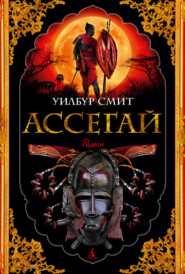По всем вопросам обращайтесь на: info@litportal.ru
(©) 2003-2024.
✖
War Cry
Автор
Год написания книги
2019
Настройки чтения
Размер шрифта
Высота строк
Поля
‘That’s all right.’
‘As for you, Shasa,’ Leon went on, ‘let this be a lesson. It’s both rude and extremely unwise to be ungentlemanly to a lady, particularly a Courtney lady, because believe me, my boy, they fight back. Honestly, if there is any young man on earth who ought to know what women are capable of, it’s you. Just think of your mother, for heaven’s sake, and all she’s achieved. Do you doubt her abilities, just because she’s a woman?’
‘No, sir.’
‘And are you sorry for doubting Saffron?’
‘Yes, sir.’
‘Good. That’s settled then, and no harm done. Now, Saffron, you’ve had a very long day. I think you should go and have that bath and perhaps, if you ask Cousin Centaine nicely, she’ll have some supper brought to your room. A bit of food and an early night is what you need, my girl.’
‘An excellent idea,’ said Centaine. ‘And I think you should do the same thing, Shasa. Bath, supper and bed … and then we can all have a fresh start in the morning.’
Shasa and Saffron walked upstairs together. When they got to the landing they paused before they went off to their rooms.
‘I wouldn’t have backed down, you know, when I went down the throat,’ Saffron said. ‘Even if you hadn’t got out of the way.’
‘I know,’ said Shasa. ‘And I wouldn’t have got out of the way, either, if it had been anyone else coming towards me.’
‘I know,’ she said.
With that they each satisfied their pride and went off to their baths with their honour and dignity intact, knowing that now they would be friends for life.
Saffron was sad to leave the haven of Weltevreden. As a motherless only child, she had loved having a relative her age to play with, and an older female role model to look up to. But after the blissful bucolic luxury of Centaine’s Cape Town estate, the size and noise and bustle of Johannesburg were an overwhelming assault to her. The city was five times as big as Nairobi, with more than a quarter of a million inhabitants, and they all seemed to move with a speed and urgency she had never experienced before, as if every single one of them had something urgent they simply had to achieve, right this very second.
‘That’s the Johannesburg Stock Exchange,’ Leon told her as they passed an ornate building, fronted by great marble columns, that covered an entire city block on Hollard Street. ‘The companies that control half the world’s gold and diamonds are traded there.’
‘It looks like a palace,’ Saffron said.
‘Well it is, in a way. It’s the palace of Mammon, the demon of money.’
Over lunch, Leon gave Saffron a quick explanation of how company shares and stock exchanges worked and was surprised by the speed with which she picked up the ideas he was presenting to her. So far, he felt, the day had gone well. He’d been perfectly happy purchasing Saffron’s tuck box, on which her name was even now being painted in elegant black capital letters. And having led countless groups of travellers and hunters across the wilds of British East Africa during his pre-War days as a safari guide he was completely at home debating the best possible trunks to buy to carry all Saffron’s increasingly vast amounts of baggage.
After leaving the restaurant where they had lunched, they arrived at the school outfitters. Suddenly talk turned to dresses, blouses, pinafores and other items of youthful female attire and Leon’s expertise gave way to bafflement. When the shop’s manageress, who’d had no need even to glance at the list to know what it contained, got on to the subject of gym knickers a look passed across her father’s face that Saffron had never in all her life seen before.
Oh my goodness, he’s blushing! she thought to herself, desperately trying to keep a straight face. He’s so embarrassed he doesn’t even know where to look.
‘Perhaps it would be best if Father took a seat and let Miss Courtney and I proceed by ourselves,’ the manageress said. ‘I take it, sir, that I have your permission to select the items that Miss will need for her time at Roedean?’
‘Yes, yes, absolutely, whatever she needs, excellent plan,’ Leon had blustered. Saffron couldn’t swear to it, but she was almost certain the manageress, who had seemed rather fearsome when they had first been introduced, actually winked at her as they walked away to deal with those mysterious aspects of female existence that were best kept hidden from the uncomprehending eyes of men.
Saffron had felt as though she was being initiated into some mysterious but exciting new world as the manageress, whose name was now revealed to be Miss Halfpenny, took an appraising look at her chest, said, ‘Someone should have bought you a brassiere by now, young lady.’ She sighed, ‘But that’s a mother’s job …’
‘I don’t have a mother,’ Saffron said. ‘She died when I was seven.’
‘I’m very sorry, but I’m afraid I feared as much. When a girl walks in with her father …’ She left the sentence unfinished, but then gave a brisk sigh and said, ‘Never mind, best just get on with it, hadn’t we? Lots of children don’t have a mother, or a father, or even both, what with the war and the Spanish Flu and who knows what. But they find a way to manage and I’m sure you will too. Just let me help you and I’m sure we’ll sort you out with everything you need.’
Saffron had been hearing this kind of stiff-upper-lip encouragement for years, but she sensed a genuine kindness in Miss Halfpenny’s voice. As she rummaged in glass-fronted drawers for bras and knickers and stockings, occasionally holding up an item in front of Saffron’s coltish, long-limbed frame, checking it for size and either discarding it on one pile or placing it on another, much larger heap of things to be tried on, Miss Halfpenny chatted away about what Saffron could expect at Roedean, and what the teachers and girls were like.
‘Your father couldn’t have picked a better place. Roedean girls, in my experience, are bright, independent, thoroughly modern young ladies. Plenty of them go on to university, too. And they are all trained to be able to earn their own living.’
‘Daddy said I needed to know about more than cookery and needlework and flower arranging.’
Miss Halfpenny gave an approving nod. ‘Well said, that man. And I’m sure he’s thinking about your mother and what she would have wanted for you and he’s trying his very best to make her happy.’
‘I hadn’t thought of that,’ said Saffron. But from the moment Miss Halfpenny said those words, her attitude to her new school changed. She resolved that she would do everything to make her mother happy, too, with the result that having turned up at Roedean in mid-January for the first day of the new academic year she plunged into school life with all the energy she possessed. Her naturally athletic physique and fiercely competitive nature made her a demon on the hockey pitch and netball court and her rapidly growing height saw her cast for many a male role in the school’s dramatic productions. It took her a term or two to learn how to adapt to boarding school life, which requires pupils to be able to get along with people with whom they share not only classrooms but also dormitories, bathrooms and every meal of the day. Saffron soon made friends, however, for her classmates knew that while her temper could be stormy she was neither malicious, nor deceitful: she said precisely what she thought, for better or for worse, and once decided on a course of action stuck to it, come hell or high water. If her ancestors were looking down from on high they must have smiled, for no Courtney had ever done anything else.
Soon after his return from South Africa, Leon had to go into Nairobi to carry out various administrative chores related to the Lusima estate. He took a room at the Muthaiga Country Club, a private, membership-only institution that was the social hub of the expatriate community in Kenya. For all its social cachet, the Muthaiga was not a particularly impressive piece of architecture, being little more than a greatly expanded bungalow, with pink pebbledash walls, painted metal window frames (for wooden frames soon rotted away in the subtropical climate) and a few classical columns by the entrance to provide a sense of colonial prestige. Inside, one walked over floors of highly polished wooden parquet, past walls painted in shades of cream and green. It looked, as Hugh Delamere had once remarked to Leon, ‘Like a cross between my old prep school and a suburban nursing home.’
Arriving back at the club one evening, after a long day of meetings with lawyers and accountants, Leon sank into one of the chintz-covered armchairs that dotted the members’ lounge. A uniformed waiter immediately appeared and took his order for a gin and tonic. The drink appeared beside him only moments later and Leon signed for it on a coloured paper chit: nothing as grubby as money was ever seen to change hands within the club’s portals. Leon took a sip of the ice-cold drink, put the glass back on the side table and leaned back in his chair, eyes closed as he let the cares of the day slip away.
Then he heard a familiar voice: ‘Evening, Courtney, mind if I join you?’
‘By all means, Joss,’ Leon replied.
Over the past few years a lot had changed in Josslyn Hay’s life. For one thing, he was now the twenty-second Earl of Erroll, having inherited the title on his father’s death, along with the honorary post of Lord High Constable of Scotland. He had not, however, inherited any money, for his father had not been a wealthy man, and the lack of cash had led to the breakdown of his marriage to Lady Idina. His second wife, Molly, was, like Idina, a wealthy divorcée and, once again, Joss saw no reason whatsoever why his marriage vows should apply to him. He still looked as he always had done: his hair swept back and blond, his head slightly turned, so that his half-closed blue eyes looked slightly sideways at anyone he was talking to. And one look was still enough to land the great majority of women who happened to catch his fancy.
So far as Leon was concerned, Joss Erroll, as he now liked to be known, was an unprincipled rogue, no matter how elevated his title might be, and if he ever so much as glanced at Saffron he’d horsewhip him all the way to the Mombasa docks and throw him onto the first outbound steamer he could find. But until that time, Leon was perfectly happy to enjoy Joss’s company. It was certainly more agreeable than that of a great many other expats he could think of.
‘Have you heard about this business at the Oxford Union?’ Joss asked, once he had been served a drink of his own.
‘What business is that?’ Leon replied.
‘A bloody rum one, I can tell you.’ Joss took a cigarette from a slim silver case, tapped it against the table, lit it and sat back, savouring the first inhalation. ‘They had a debate with the motion, “This House will under no circumstances fight for its King and Country.”’
‘Bloody Hellfire! I trust the motion was soundly defeated.’
‘’Fraid not, old boy, it was carried by almost three hundred votes to one hundred and fifty. A two-to-one majority.’
Leon looked aghast. ‘Are you seriously telling me that the flower of young English manhood, the fellows who are supposed to be the brightest and best of their generation, have declared that they will never fight for their country?’
‘Apparently so,’ Joss replied. ‘The Huns, or the commies, or even the damn French can pitch up on our shores, march across the country, rape our womenfolk and pitchfork our babies, and the brightest brains in the kingdom will simply say, “By all means, feel free.”’
‘I don’t believe it,’ said Leon. ‘Of course the last war was bloody. And I know people say it was the war to end all wars. But this lily-livered pacifism is nothing but cowardice and treachery. There are times when the nation simply has to be defended and a man has to answer the call.’
‘Couldn’t agree with you more, Courtney. But then again, you and I are simple, straightforward chaps. We’re not like these intellectual Oxbridge types.’
‘Well, I grant you,’ said Leon, ‘there is no one on earth as dangerous as a really clever fool. But even so, how in God’s name were the audience at the Union persuaded to support the motion?’
Joss took a long lazy drag on his cigarette as a sly smile played across his lips. ‘Oh, you’ll love this … the chap proposing the motion, Digby I believe was his name, said that we should all follow the example of Soviet Russia, which was the only country fighting for the cause of peace … a rather interesting paradox, that, I thought: fighting for peace.’
‘Perhaps that’s what the Reds were doing when they seized power in a bloody revolution and murdered the Tsar and his family,’ Leon observed.
‘Ah, yes, that must have been it. How foolish we were not to spot their peaceful intentions. Anyway, when Master Digby had said his piece he was supported by a philosopher called Joad – can’t say I’ve ever heard of him but apparently he’s considered quite the coming man in philosophical circles – and he suggested that if Britain should ever be invaded there was no point fighting our enemies with weapons. We had to engage in a campaign of non-violent protest, like Mister Gandhi goes in for, in India.’
‘Good grief,’ gasped Leon. ‘Can you imagine it if these people get their way? Enemy planes will start bombing London and their tanks will roll down Whitehall, and all we’ll have to defend us will be Joad and a bunch of conscientious objectors from Oxford University sitting in the middle of the road, chanting for peace?’
‘Well, look on the bright side, Courtney. Most people don’t go to Oxford University.’














